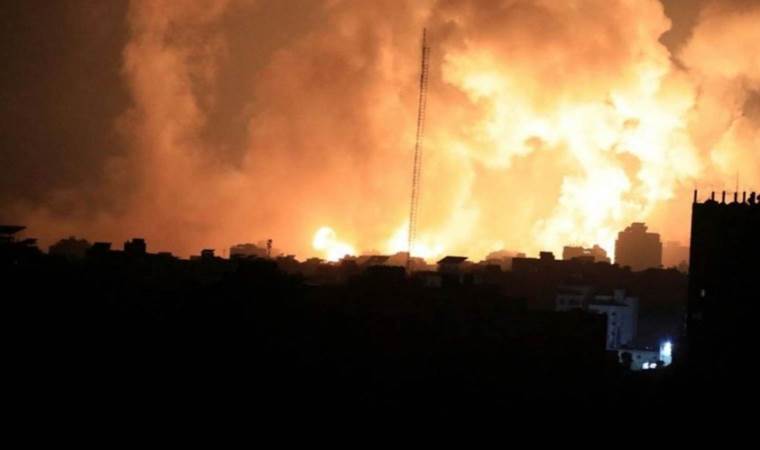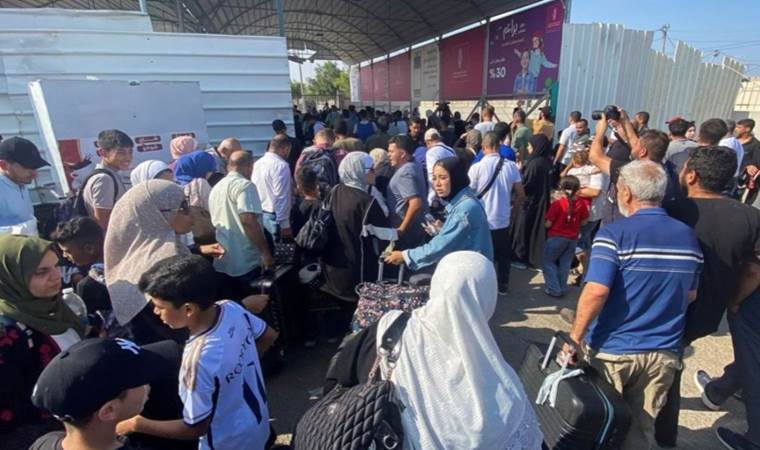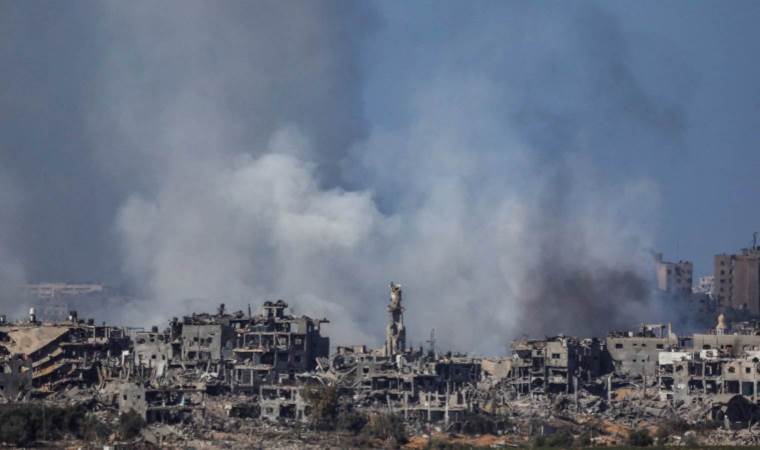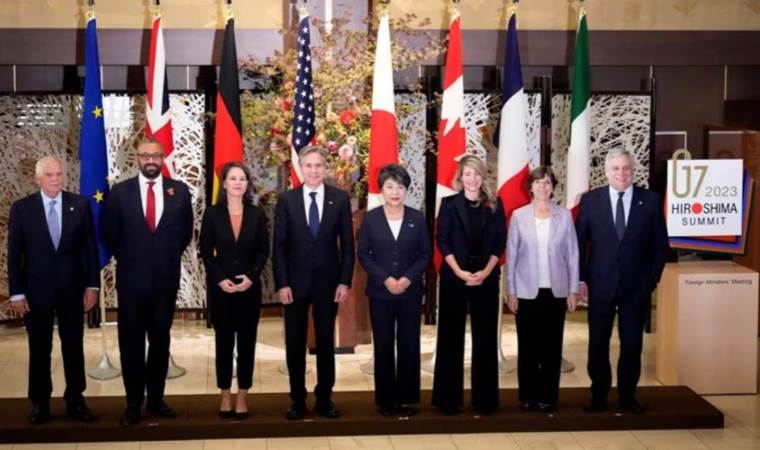Leaders of Islamic Nations Gather Around in Response to Israeli Attacks on Gaza
The Organization of Islamic Cooperation (OIC) member states' leaders are set to gather for an extraordinary meeting focusing on the enduring conflict in the blockaded Gaza Strip.
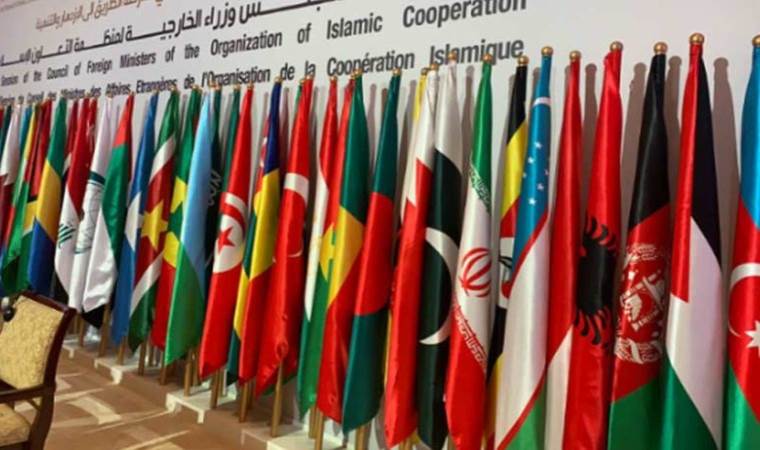
The Israeli army's continuous attacks, spanning 35 days and involving extensive aerial bombardment using tens of thousands of tons of bombs, have spurred global concerns.
On October 7, the Izz ad-Din al-Qassam Brigades, Hamas's military wing, initiated a comprehensive offensive in response to perceived Israeli transgressions against Palestinians and holy sites, particularly the Al-Aqsa Mosque. Subsequently, Israel, backed by the United States and the Western world, declared war on the 2.3 million inhabitants of Gaza, a region it had blockaded since 2006.
The Israeli military's actions have resulted in the complete or partial destruction of hundreds of thousands of structures, including homes, hospitals, and places of worship. This 35-day assault has also impeded the entry of essential supplies, including food and medicine while severing electricity and water access.
As reported by the Palestinian Ministry of Health in Gaza, Israeli attacks have claimed the lives of 10,812 Palestinians, including 4,412 children and 2,918 women, with an additional 26,905 people sustaining injuries.
In the occupied West Bank and Jerusalem, Israeli forces and settlers have killed 182 Palestinians.
Ongoing Aggression and Global Responses
Israel's relentless bombardment of Gaza, spanning air, land, and sea, persists. The Tel Aviv administration has committed to continuing the conflict until the depletion of Hamas's military capabilities.
Islamic and Arab countries, particularly those neighboring Palestine, are calling for urgent measures to address the basic needs of hundreds of thousands of refugees and the treatment of over 26,000 individuals injured during the attacks. Their demands include an immediate cessation of hostilities and the establishment of safe humanitarian corridors.
Concerns also arise regarding the post-war governance of Gaza. Jordanian Foreign Minister Ayman al-Safedi has categorically rejected any governance discussion by Arab or non-Arab forces, a sentiment echoed in reports on Egypt's similar stance against the presence of foreign forces in Gaza.
The international community's response to Israel's proposal for the "relocation of the population in the Gaza Strip" since October 7 remains a focal point of discussions.
Islamic Summit Addressing the Crisis
Leaders and heads of government from the 57 OIC member states will gather for the 8th Extraordinary Islamic Summit in Riyadh, Saudi Arabia, on November 11. The summit, prompted by Saudi Arabia, aims to address Israel's aggressive actions against the Palestinian people.
In a statement, the OIC highlighted that the summit seeks to forge a common Islamic stance and action against Israel's ongoing aggression. A preparatory meeting on November 9 paved the way for foreign ministers to present decisions to leaders at the summit, focusing on the Palestinian issue and concerning developments in Jerusalem.
The statement underscored the worsening humanitarian situation in the occupied Palestinian territories, especially in Gaza, due to Israel's perceived crimes against the Palestinian people.
OIC Foreign Ministers Meeting and Prior Statements
The issue of "Israel's ongoing military aggression against the Palestinian people" was previously discussed during an extraordinary meeting of the OIC Open Participation Executive Committee at the ministerial level in Saudi Arabia on October 18. The committee expressed support for Palestine's legitimate right to self-defense against Israeli aggression and called for an immediate end to what they deemed Israel's "barbaric" acts against Palestinians. The committee further urged the lifting of the blockade on Gaza, condemning the aggression and emphasizing the need for humanitarian aid to the Palestinian people.
OIC Convenes Extraordinary Summits in Support of Palestine
The Organization of Islamic Cooperation (OIC) has previously organized two extraordinary summits dedicated to addressing the situation in Palestine.
The first summit was prompted by the announcement made by then-US President Donald Trump, revealing plans to recognize Jerusalem as the "capital of Israel" and relocate the US Embassy from Tel Aviv to Jerusalem. On December 13, 2017, responding to these developments, the OIC held an extraordinary summit in Istanbul, initiated by the then President of Turkey.
In the summit declaration, Islamic nations asserted East Jerusalem as the capital of the State of Palestine, urging countries worldwide to acknowledge the State of Palestine and recognize East Jerusalem as its occupied capital.
Subsequently, in response to the relocation of the US embassy to Jerusalem and escalating events in Palestine, the OIC convened another Extraordinary Meeting of the Islamic Summit Conference in Istanbul on May 18, 2018.
The declaration issued at the conclusion of this meeting called for international protection for the Palestinian people, emphasizing the potential deployment of an international peacekeeping force.
Most Read News
-
 EU extends sectoral sanctions on Russia
EU extends sectoral sanctions on Russia
-
 Southern Europe swelters as 2025’s first major heatwave
Southern Europe swelters as 2025’s first major heatwave
-
 At least 8 killed in blast at southern Indian pharma fac
At least 8 killed in blast at southern Indian pharma fac
-
 Irish band voices support for Palestine during Istanbul
Irish band voices support for Palestine during Istanbul
-
 UK lawmakers call on government to 'urgently' create Ukr
UK lawmakers call on government to 'urgently' create Ukr
-
 Iran slams IAEA silence to Israeli-US attacks, demands a
Iran slams IAEA silence to Israeli-US attacks, demands a
-
 Russia regrets Azerbaijani decision to cancel cultural e
Russia regrets Azerbaijani decision to cancel cultural e
-
 Germany ‘deeply concerned’ over deadly Israeli strikes n
Germany ‘deeply concerned’ over deadly Israeli strikes n
-
 UN chief warns of ‘decimated’ aid budgets at development
UN chief warns of ‘decimated’ aid budgets at development
-
 Gaza death toll tops 56,500 as Israel continues genocida
Gaza death toll tops 56,500 as Israel continues genocida
